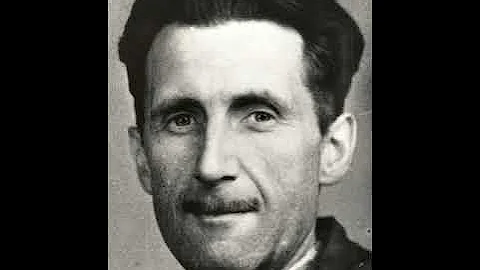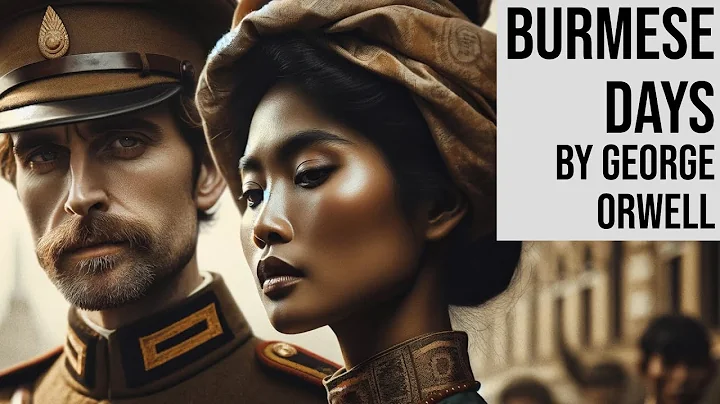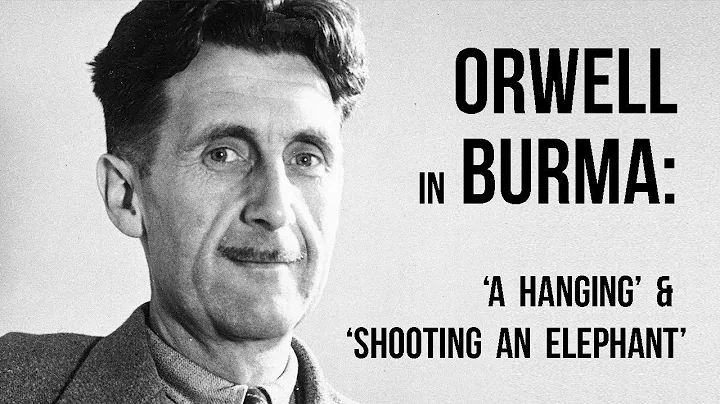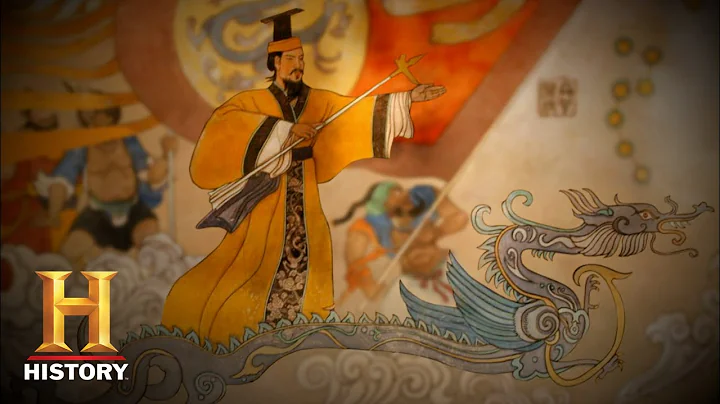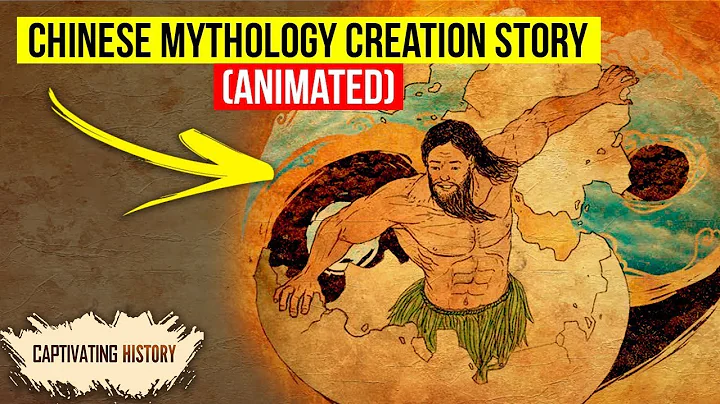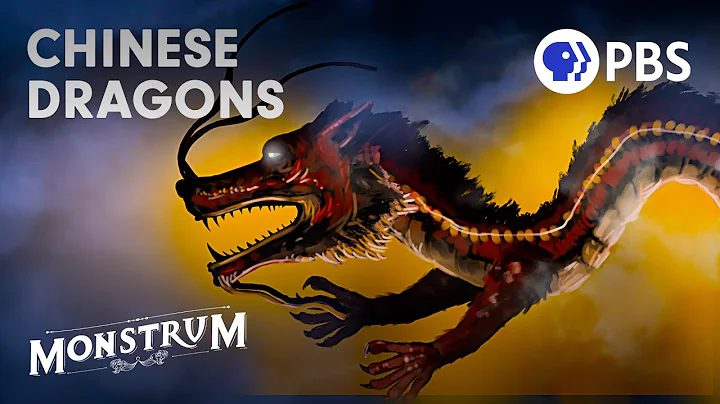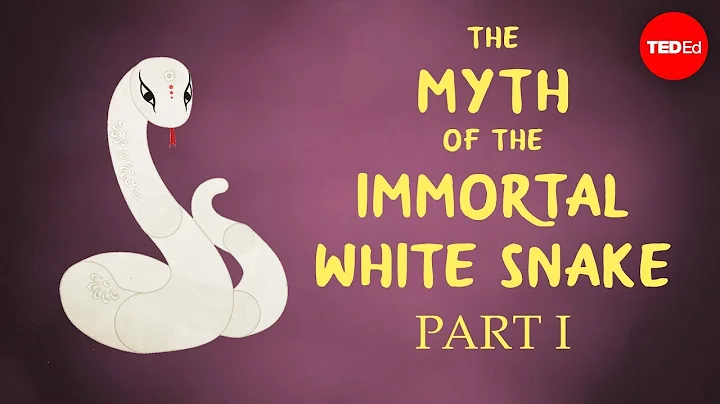Source of this article: "British and American Literature Research Series"
Reprinted from: The Confusion of Syracuse

In 1885, the British army captured Mandalay, the capital of Myanmar, and began its colonial rule that lasted for more than half a century. During this period, the British in Burma regarded the Burmese as an inferior race and were concerned about "the injustice and suffering caused to the native soldiers or servants, the depravity of the few professional people among the subject subjects, and the self-aggrandizement of the jungle." , most British people are very satisfied, or at least acquiesce."
Orwell witnessed the evils of imperialism while serving as a police officer in Burma. Although he admitted that the British did a better job in managing Burma than the locals, he still regarded colonial rule as unreasonable harsh rule and criticized himself. I felt deeply guilty for participating in it, so I quit this well-paying job before it was time to retire - "I did serve in the Indian police force for 5 years, and I did give up the job midway. It’s because it doesn’t suit me, and more importantly because I don’t want to work for imperialism anymore, because I know the inside story of this period can be found in my writings, including this book. novel". The reference here is his first novel "Burmese Days". The background of the story is in the Burmese town of Keoktada when the British colonial rule was waning. A group of British people gathered in a white club and drank all day long to relieve the unspeakable loneliness in their hearts. Among them, the weak-hearted Flory knew that British colonial rule was meaningless, but lacked enough perseverance to dare to fight for membership in the white club for his Indian friend Dr. Veraswamy. In the book, Orwell not only gave a vivid account of the life of the British in Burma, but also explored the complex racial relations therein, especially the various ways in which the British exercised power over the natives of India and Burma.
Looking at racial politics from the perspective of power relations
The way of exercising power in modern society is mainly discipline, which refers to various systematic methods to achieve obedience (including observation, recording, calculation, adjustment and training, etc.). According to Foucault , discipline is "a type of power, a form of exercising power, including a set of tools, techniques, procedures, application standards and objects." Its ultimate goal is to achieve the shaping and control of individuals by authority. In the context of national politics, Althusser divides the way in which power is exercised into repressive state apparatuses and ideological state apparatuses. RSA refers to the public exercise of power over subordinate classes through means such as the police, military, and criminal law systems. These violent means are not only economically costly, but also unsatisfactory in maintaining social production and class relations. According to Foucault, power must be exercised with caution in order to reduce the likelihood of resistance. Overreliance on violent methods is clearly "a sign of a weak regime in which subordinate classes (including some elements of the ruling class) will believe that they are in an unfair situation and try to change it." Therefore, a better solution should be a situation in which everyone from the dominant group to the subordinate group feels that the current system is fair and reasonable, that is, "ensuring that the situation in which one class uses power over other classes is extremely natural in the eyes of most members of society." ’ s, or don’t let them realize it at all.” This requires non-violent ISA means to adjust social contradictions and reproduce class relations. ISA refers to the exercise of implicit power over subordinate classes through means such as religion, education, and mass media. Due to this secrecy, ISA is more efficient and terrifying. Without its support and assistance, RSA cannot maintain the social status quo for a long time. In "The Burmese Years", the British exercised power over the Indian and Burmese colonies, not only using the repressive state apparatus (RSA) of the police, army and criminal law system, but also using the invisible weapon of the ideological state apparatus (ISA). In order to achieve ideological domination, they imposed an artificially constructed inferior national identity on the indigenous people and asked them to identify with it, thus perpetuating their superior status.

"Burmese Years"
The word "identity" literally means "identity", that is, a set of behaviors or personal characteristics based on which an individual is regarded as a member of a group. According to Bakhtin , the so-called "self" is abstract and illusory. Self-recognition can only be achieved through constant comparison and interaction with a coordinate point (i.e., "not-self"). This is indispensable for constructing the self. The coordinate point is the “other”. In other words, the self (the perceiver) and the other (the perceived) do not exist in isolation as separate entities, but as "a relationship between two coordinates...to distinguish each other." In racial politics, the construction of identity and The distinction is often not in a biological sense, but in a cultural and ideological sense, and is often accompanied by exaggeration and distortion, becoming "a product used to support and consolidate imperialist self-definition." As Greenblatt said, since people always define their self-identity by "what we are not", then "what we are not" must be objectified and demonized as the "other" - "madness, willfulness and People who are different are internalized as 'others', which helps us solidify our identity: their purpose is simply to justify the given power."
Europeans know that it is important for them to build an opposite image, and then they set their sights on Easterners. In order to distinguish the two, they simplified the Orientals into a fixed image, always associated with ignorance, savagery, and filth, in order to set off their own racial superiority. In other words, in the process of European identity construction, Easterners lost their true identity and were forced to become what they were expected to be. Said once proposed: "The East is Europe's cultural rival and its most profound and common image of the other. In addition, the East, as a contrasting image, thought, personality, and experience, also helps define Europe (the West)." . Whether this image is correct or not, it "has always been the public's frame of reference." The result is that Europeans take their sense of superiority for granted and hope that the colonized people will internalize the imperialist ideology (that is, consciously or unconsciously based on Eurocentric views), thus becoming accustomed to destroying their own nation, Accept your own subordinate position.
Insurmountable Identity Boundaries
In "Burmese Years", Europeans emphasize the distinction between themselves and the Burmese indigenous people in all aspects, because any behavior that blurs this distinction will pose a potential threat to their identity. This is reminiscent of Homi Baba 's concept of "imitating people" - the so-called imitating people are colonized people who are deeply educated by the culture of the sovereign country. "The more similar he is to the colonizer, the easier it is to pose an offensive threat to colonial authority. The presence of imitators in colonial discourse is a deconstruction of the representational structure of colonial power." Examples of this occur throughout the novel - Ellis is a typical British chauvinist who despises the native Burmese and fills the story with rude remarks such as "This country is in riots because we are too soft on them." The only effective policy is to treat them like dirt." Compared with this blatant curse, a detail in the book better reflects the hypocrisy of British colonial propaganda (that is, the introduction of advanced civilization into backward countries): On a scorching sun morning, Ellis asked the club steward if he had any leftovers. How many ice cubes. When the butler replied, "I find it very difficult to keep ice cool now," Ellis was furious. The reason for the anger was not because there was not enough ice to prevent heatstroke, but because the English of the native housekeeper was too standard and elegant: "Don't you fucking talk like that - what else is there? 'I found it really difficult!' Did you just swallow Why don't you get a dictionary? 'Sorry, master, the ice won't stay cold' - that's what you should say. If any guy starts to speak English too well, we have to let him go. English Servant”.Beneath the haughty air of the British is a fear that lurks in the hearts of all imperialists, a fear that makes the conquerors intolerant of any native intelligence - although from a purely linguistic point of view, English is not superior to other Language, but in the minds of the British, an English with rigorous grammar and elegant expression represents good cultivation and prominent status. If the indigenous people become as educated as them, their "otherness" will naturally disappear. exists, and naturally disappears along with the British sense of superiority. Therefore, the colonists could only accept the education of the indigenous people (even if it was only in a symbolic sense) to a certain extent. As Atkins said: "The great era of the empire was the time when they led the natives towards the light of civilization, but when this light was really right in front of them, it became unbearable."
The same situation also occurs in the attitude of Europeans towards religion - few British people in the story truly believe in the doctrine, but they regard Christianity as a symbol of the difference between themselves and the indigenous people, and thus the colonial era emerged An ironic phenomenon: Western missionaries spared no effort to preach doctrine and persuade the natives to believe in Christianity, while ordinary Europeans were full of fear of the conversion of the natives and feared that it would lead to identity confusion. In "The Burmese Years", Ellis was originally a cynical and blasphemous person. When praying, he always covered his face with a hymn book and cursed God in a low voice. However, when faced with the participation of indigenous believers, he looked like a defender of Christianity. Posture:
"I can't stand those fucking native Christians crowding into our church. A bunch of Madrasi servants and Karen teachers, and those two yellow bellies, Francis and Samuel Er - they also claim to be Christians. When the pastor came to our place last time, they had the guts to sit in the front row with the white people. Someone should come out and talk to the pastor. What a fool you are for letting this happen! You tell the street sweepers in the market that they are no different from us. 'Sorry, sir, I'm a Christian like the master.' How shameless."
In Ellis's eyes, Easterners should maintain their inferior, barbaric, and vulgar otherness. Their convergence with Europeans in any aspect will destroy the frame of reference that Europeans use to define themselves. Because of this, Europeans refused to interact with the natives. Instead, they closed themselves in their own little world, playing cards, drinking, and chatting in clubs all day long. Their lives were deathly silent and boring. The protagonist Flory of
is different. He is extremely obsessed with Eastern culture and is very disgusted with imperialist rule and the contempt of the indigenous people by his compatriots. Although he once drank too much and lived in prostitution, he felt morally ashamed of himself and even the depravity of the entire British Empire, and was deeply disgusted by the pretentiousness, ignorance, and arrogance of the compatriots around him. Therefore, he went out of the club and established extensive contacts with local Burmese society - he not only had a close relationship with the servant Khosla and the doctor Veraswamy, but also had a good relationship with the Chinese grocer Li Ye. These relationships were closely related to the ideas of imperialism and the British apartheid in India runs counter to the caste system. Therefore, in the eyes of his compatriots, Flory's words and deeds were truly alien, and his friendship with Dr. Veraswamy undermined his own racial identity in the white community. Ellis compared Flory to the American black educational leader Booker T. Washington and scornfully called him a "nigger's partner" to "otherize" him. Even Elizabeth, a British girl who had just arrived and had a crush on Flory, was confused when he took her to the indigenous community to watch the local Peewee play - Flory still had hope for a better life and longed for a better life. A close friend of the opposite sex came to share his feelings and get rid of the loneliness and loneliness in his heart, so he was full of daydreams and expectations for Elizabeth, who had just come to Myanmar. However, the other party did not appreciate the beauty contained in the primitive culture at all, and he only felt fear and uneasiness. : “She looked about her at the mass of black faces and the terrible light of fire; she was horrified by this strange sight.What are you doing in a place like this? Is it right to sit like this among black people, almost touching them, smelling their garlic and sweat? Why don't you go back to the club and be with those white people? Why had he brought himself here, with these natives, to watch such an ugly and barbaric display? "Only after returning to the club, Elizabeth felt safe and peaceful, because the "gentle" atmosphere of the club and the white faces around her made her feel more stable.
The novel also has a rich symbolic meaning The image is Flory's birthmark. Although it is described as "dark cyan" in the story, in Ellis's eyes, this birthmark is simply black - "In my opinion, he is also a bit too Bolshevik." I can't stand anyone hanging around with the natives all day long. I wouldn’t be surprised if he himself had black blood, maybe that’s why he has a dark spot on his face.” According to postcolonial theory, skin color is a signifier in the referential system of racial politics, What it actually refers to is an ideological difference. Similar to skin color, the birthmark "exposes Flory's otherness and is a sign of his un-Britishness", symbolizing his identification with the Burmese indigenous people and his challenge to racial boundaries. After his death by suicide, the birthmark's function of representing "otherness" and resisting mainstream ideology disappeared, and then slowly faded into a faint gray spot. In contrast, the natives who suffered from colonial rule and imperialism. The person's artificially constructed identity controls their words, actions and thinking, and even becomes a kind of unconsciousness, so that they regard this identity imposed on themselves as very natural. Jameson borrowed Freud about "repression". The idea of (repression) puts forward the concept of "political unconsciousness" and believes that the function of ideology is to suppress the "revolution" - not only the oppressors need political unconsciousness, but the oppressed also need it. If the "revolution" is not suppressed, On the contrary, they cannot bear their own existence. In other words, Easterners are consciously or unconsciously shaping themselves according to the image of the other constructed by Westerners. In "Burmese Years", the most prominent example is the Indian doctor Veeraswami. This man is cautious in his words and deeds and is modest, but he admires European civilization very much and firmly believes that Easterners are inherently inferior to white people and cannot achieve social progress on their own. Instead, they must rely on Britain's advanced management technology to save this backward land. His long-winded, extremely unnatural English was a typical example of the Indian and Burmese intellectuals at that time. During an argument with his white friend Flory, the other party rebuked the British Empire as "a machine that provides trade monopolies for the British." At that time, Veeraswamy, as a member of the ruled nation, firmly defended the British colonial rule:
“My friend, I feel very sad to hear you say this, really sad. You said you are here to do business? Yes, this is true. Can Myanmar people do business on their own? Can they build machines, build ships, build railroads, and build roads? Without you, they can't do anything. ...In your hands, the forest is getting better and better. Your businessmen exploited the resources of our country, and your officials, acting out of pure public conscience, civilized us and raised us to their level. "
From this perspective, Dr. Veeraswamy not only accepted the archetypal image imposed on his own nation, but also took Western culture as a model. In fact, there were many Chinese with "black skin and white masks" at that time. High-level Indian and Burmese intellectuals held similar attitudes, which naturally served the interests of the colonizers.
Clubs: Symbols of Racial Identity
The most striking example of racial distinction in the novel is the exclusivity of the European Club for the British in India. , the club has become more than just a place for entertainment and socializing, but a symbol of racial identity and the center of white supremacy: "The whole concept of the club can be said to be the most British thing in the world...although elsewhere There are indeed clubs, but Britain is the preeminent country of clubs." In this country, "any place where everyone can enter is not respected."Therefore, British clubs often limit the number of members to show their excellence; and in British India, club membership is the exclusive right of the British, which can greatly strengthen the distinction between colonizers and colonized people: "This The function of this painstakingly created club membership is, on the one hand, to ensure the unique and extraordinary qualities of the colonizers, and on the other hand, to ensure that the colonized are always characters waiting to be rescued.” Because of this racial exclusivity, the European Club has been given a sense of mystery and even sacredness in the eyes of local indigenous people:
When you see the club - it is a dilapidated one-story wooden building - you just See the true center of the city. In every town in India, the European Club is its spiritual bastion, the real seat of British power, the paradise for which native officials and millionaires yearn in vain. This is especially true here, because the Keoktada Club prides itself on being the only one in Burma that never admits Oriental members.
This seriously xenophobic white club has become "a fortress for the British, the last symbol of protecting Britishness from outsiders"; for the indigenous people, it represents the desire for reputation and power, and is a "distant and remote place". And the mysterious palace, the holy place that is even more difficult to climb than heaven."
In the 1920s, faced with the surge of nationalism and tense racial relations in the Asian colonies, the British government in India issued an official letter requiring clubs without indigenous members to absorb at least one indigenous member. As the last club in Myanmar to boycott indigenous members, this decision naturally caused a commotion at the Keoktada Club. With the exception of Flory, all the British were vehemently opposed, disgusted by the thought of "big-bellied, little niggers breathing the stench of garlic right into your face across the bridge table." The underlying reason is that they firmly believe that granting membership status to indigenous people (even those in high positions) will inevitably blur racial distinctions and threaten their own identity. Therefore, they are determined to defend this remaining public space against non-European intervention.
In the indigenous society, the news of the club's recruitment also triggered a fight between the local magistrate U Pojin and Dr. Veraswamy. The doctor is a close friend of Flory and the highest-ranking indigenous official in the area, so he is highly likely to be selected. Wu Bojin, who also coveted membership, would do anything to ruin the doctor's reputation in order to achieve his goal. Club membership is not an official title, so why did these two go to such lengths to get it? Part of the fetishistic value of the European Club stems from the idea that "it is the essence of Britishness, and therefore membership is tantamount to joining the inherent heritage of Great Britain." In other words, since the club has become a symbol of Britishness, once the Aboriginals gain access to the club, they are equivalent to acquiring a "quasi-European" identity, and this new identity has an actual effect far greater than a thousand official documents. . Therefore, when Flory did not understand why Dr. Veraswamy wanted to join the club so much, the doctor strongly emphasized the "prestige" aspect:
"My friend, in this kind of thing, reputation is everything. In fact, Wu Bojin He won't attack me publicly, and he doesn't have the guts; but he will slander and slander me, and whether anyone believes his words depends entirely on my status among Europeans... You don't know at all, an Indian. How much can a person's reputation increase once he becomes a member of the European Club? Once you enter the club, you will almost become a European. No amount of gossip can affect you. "The doctor said that the club is inviolable. Seen as an impenetrable fortress, once he gains membership, he becomes inviolable and no one will believe the slander against him. This "quasi-European" identity complex also applies to Wu Bojin, the other side of the power struggle.As the local magistrate of Keoktada, he is already a powerful person, but in his eyes, compared with his membership in the club, other achievements in his life are not worth mentioning:
A low-level official climbed all the way up European clubs - this would be a real feat - and even more so in Keoktada. The European Club, that distant and mysterious palace, that holy place even harder to climb than heaven! Pochin, the poor naked kid from Mandalay, the petty clerk and nobody, would go into that august place, call the European "old man," drink whiskey and soda, Knock those white balls around on the green table!
This inner monologue is exactly the same as what Dr. Veraswamy told Flory. Although the two men were vastly different in character and character, they were indistinguishable in their eagerness for club membership. U Po Kyin's wife Ma Jin is a kind-hearted Burmese woman. She is very disdainful of her husband's unscrupulous efforts to bring down Dr. Veraswamy. But even she couldn't help but look forward to it when she heard U Po Kyin mentioning her ambition to join the European club: "She will put on stockings and high heels on her feet, sit on a high chair, and speak in Indian The thought of talking to European ladies about baby clothes would make anyone dizzy." Thinking about the European Club and the glory it contained, she considered, for the first time in her life, without reproach, U Po Kyin's conspiracy. In this sense, Flory's ultimate downfall is inseparable from the indigenous people's almost pathological fascination with the club - Upo Kyin's greed for membership made it necessary for him to get rid of Flory, who supported his rival; Dr. Veeraswamy, the loser in the power struggle, was also obsessed with white clubs, and finally joined a second-rate club where Indian lawyers often come and go. The greatest glory of this club is that it has the only white member. This man was fired from the fleet company because of his addiction to alcohol. Now he lives by repairing cars, and his life is extremely unstable - "McDougall is a boring fool who is only interested in whiskey and magnetos. But the doctor just doesn't Ken believed a white man would be a fool and tried almost every night to engage him in what he called 'civilized conversation,' but the results were always unsatisfactory."
The Death and Life of Imperialism
Throughout the novel, the idea of imperialism is deeply rooted, and no British person can completely escape its influence. Flory seems to be a tragic hero who dares to fight against racial policies, but he also has a strong inner temptation to conform to the dominant ideology. On the one hand, he resisted the identity imposed on the natives by the colonizers, and on the other hand, he consciously or unconsciously molded himself according to the archetypal image of the "white man" (that is, masculine, noble, and civilized). Although Flory was intent on balancing the relationship between the colonizer and the colonized (insisting on Aboriginal club membership), his attitude towards Aboriginal women was very much in line with the logic of imperialism - Flory's sexual partner, Burma The girl Mallarmé always appears as an objectified and othered image, like a pet or a doll rather than an independent individual: “Her oval, calm face was bright copper, and her eyes were small, much like a A doll is one of those strange-looking but extremely beautiful dolls.” "Her teeth are very good, just like a kitten's teeth. He bought her from her parents two years ago for 300 rupees." From Flory's perspective, Mallarmé is not a woman with an independent personality at all, but just a pet raised for her own entertainment. From this point of view, although Florey fiercely fought against his compatriots on certain political views, he was actually no different from other British people. The absence of positive characters in the entire story also reveals Orwell's attitude that colonial rule has a generally corrupting effect on the national thoughts of the mother country.
Since Orwell had not yet formed a systematic political view at that time and only had personal moral likes and dislikes, he did not propose any substantive solutions to the imperialist system. As Zwodlin said, "The Burmese Years" "It made a profound diagnosis of imperialism, but did not point out the way out of this quagmire." In order to get rid of this sense of guilt, Orwell gave up his decent job in the Royal Police after leaving Burma. In an almost masochistic way, he mixed with the laborers, unemployed, and vagrants at the bottom of society, and focused his attention on From race relations to class relations, he created works such as "Down and Out in Paris and London" and "The Road to Wigan Pier" with sharper observation and sharper writing skills, which laid the foundation for future in-depth exploration of social power relations. Ding's work "1984" laid a solid foundation.



